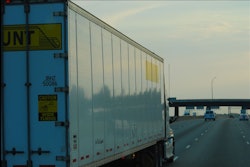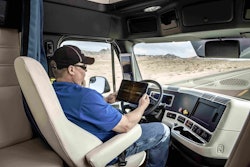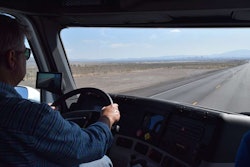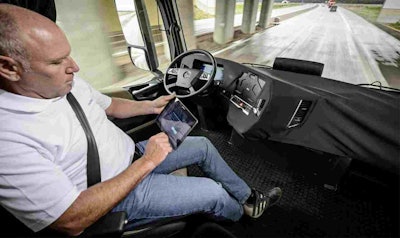 Perry and Gross see the industry as on the verge of the automated revolution, which they say will be a major shock to the industry. Carriers need to prep to survive, they said.
Perry and Gross see the industry as on the verge of the automated revolution, which they say will be a major shock to the industry. Carriers need to prep to survive, they said.The trucking industry is on the precipice of 10 to 20 years of change unlike it’s ever experienced, says transportation economist Noël Perry, and carriers who want to survive these changes must be prepared for them, he said.
“The last major change we had was deregulation,” he said. “And it had only a fraction of the power of this one. It eliminated almost all of the carriers in business at the time. A few came through, but not many. This change is even larger.”
Perry spoke in a session titled “The Future of Transportation: A 30-year View” at the 2016 FTR Conference held in Indianapolis, Indiana, last week, in which he predicted vehicle automation (aka autonomous or self-driving trucks) will make major in-roads in the industry in the coming two decades.
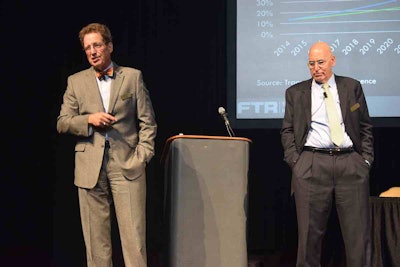 Noël Perry, left, and Larry Gross, right, speaking during a session at last week’s FTR Conference.
Noël Perry, left, and Larry Gross, right, speaking during a session at last week’s FTR Conference.He shared the stage with FTR partner and economist Larry Gross.
“I think [automation] is going to happen faster than most think,” Gross said, due to cost savings for fleets and the safety aspects of autonomous vehicles.
The number of people killed each year in the U.S. in automobile crashes is the equivalent to two Boeing 747s (which hold more than 450 people) crashing every week domestically, Gross said. “There’s a tremendous amount of leverage in getting this technology not just for trucks, but for cars that won’t text, won’t play PokeMon Go, won’t spill coffee in their lap, won’t get tired and won’t get drunk. It will have big impacts on the [transportation world].”
Perry estimates that a fully automated tractor-trailer would save fleets’ more than $1 a mile in operating costs. About half of that comes from driver wages, with the rest spread out among lower insurance costs, better fuel economy and higher productivity of automated trucks.
But the automated revolution won’t be without its thorns, Perry said. “It could create massive, temporary unemployment, like the depression,” he said. He likened the change to when tractors replaced laborers on farms and when bulldozers replaced shovelers on highways. “History can be a good teacher for us,” he said.
“My message is this will certainly not be a smooth process. There are going to be the proverbial bumps along the way — a lot of casualties and dead-ends,” he said. “But the end result will have legs.”


